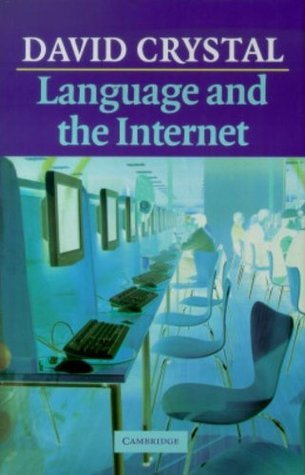In comparison to all of the media we have available to us as means of communication, the internet is still incredibly young. As such, any kind of analysis of the linguistic style(s) of the internet is greatly limited by the (comparatively) minimal amount of available data. Crystal's attempt is mostly descriptive, and he admits that there is no way of knowing what kind of impact on language the various areas of the internet he explores will have. He does this well, and quite humorously, coming to the final conclusion that whatever effects the medium has on language, they will be interesting and ultimately good.
This is the second edition, printed 2006, of a book originally published in 2001. Because of the relatively limited nature of the information he is using, I would be interested to see another revised edition of this work in another five years, when the author can perhaps reach some more satisfying, or, at the very least, grounded, conclusions.

